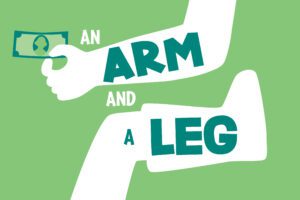What Is Sick Insurance And How Does It Work?
What is sick insurance?
Sickness insurance used to be known as permanent health insurance. It pays a regular income to replace your wages if you can’t work because of ill health or injury. The policy pays out until you can return to work or reach retirement age, whichever is sooner.
How does sickness insurance work?
Sickness insurance pays out a percentage of your usual income while you’re away from work.
How much will sickness insurance payout?
Illness insurance pays up to 70% of your gross income. It doesn’t pay 100% because the monthly benefit you receive from your income insurance policy isn’t taxable, as you’ve already paid tax on the earnings you use to pay the premiums. You may also receive statutory sick pay and be able to claim benefits if you’re away from work because of long-term illness.
Your payments will be taxed if your employer pays the premiums as they’ll be paid from their pre-tax income.
When will payments start?
You’ll usually need to wait at least four weeks. The deferred period will depend on factors such as the amount of contractual sick pay you’ll receive from your employers and whether you can claim statutory sick pay.

Is sickness insurance right for you?
Different factors will influence whether sickness insurance is right for you. Here are a few questions to ask before you decide.
Do you already have coverage from your employer?
Some employers offer sickness insurance as an employee benefit. Check whether this is the case for you and what level of cover is provided.
Do any of your other insurance policies include sickness insurance?
Some policies include sickness insurance which covers specific payments, for example, your mortgage payments.
You may still need a separate policy to cover your other bills, but the amount of coverage you need will be lower.
Do you have savings?
You may think you don’t need insurance because your savings will cover your monthly expenses. However, consider how far your savings will go. If you’re away from work for an extended period, your bank account could end up being seriously depleted

Benefits of sickness insurance
Which? considers income protection insurance to be “the one protection policy every working adult in the UK should consider.”
The main benefit of sickness insurance is that it allows you to maintain your quality of life. You may get company sick pay from your employer or claim statutory sick pay, but this is likely to provide a much lower income than you’d receive from an income protection policy.
Paying the mortgage and household bills
Mortgage payment protection insurance may cover this expense when you’re absent from work but won’t cover any other bills.
Sickness insurance policies provide regular payments much closer to your usual net income to cover household expenses such as utility bills and food.
Taking care of your children
Being able to pay for childcare and your children’s extracurricular activities means that their life can continue as normal if you fall ill. If your children are older and rely on you for financial support, your sickness cover can pay those costs too.
Loans
If you have other loans, for example, car finance, illness insurance will allow you to keep making monthly repayments if you don’t already have payment protection insurance.
Household maintenance
Long-term ill health or disability may mean putting home improvements or maintenance on hold or finding the funds to adapt your home. Illness insurance gives you a monthly income to cover payments for home improvements or other adaptations.
How much does illness insurance cost?
The cost of your monthly premium depends on various factors including the policy terms and your circumstances. Here are a few factors that influence the cost of your monthly premiums.
Age
The older you are, the more likely you will experience poor health and claim on your policy. Most insurers will offer a policy cease age of 50-70, depending on your planned retirement date.
Health factors
Your premium will be lower if you’re in good health. If you have chronic or pre-existing conditions, or if you’re a smoker this will increase your premiums.
Your insurer will also ask about your family’s medical history to look for any genetic or potentially hereditary conditions.
Your occupation
A high-risk job means higher sickness insurance policy premiums. Different insurers will assess the same job differently, so it’s worth getting several sickness insurance quotes to find the best value.
Your activities outside work
What you do outside work is just as important as your job. If you only have low-risk hobbies, your premiums will be lower than if you participate in dangerous sports.
The level of cover you need
The amount your policy pays impacts the cost of your premiums, so it’s worth thinking carefully about how much coverage you’ll need.
You can start with your net monthly income and how much company sick pay or statutory sick pay you’ll receive. Think about how your monthly outgoings may change during an absence from work. Your heating bills may increase, but you’ll save money on travelling to work.
If you currently receive means-tested state benefits, consider whether your illness insurance will affect your eligibility if it goes above a certain level. Sickness insurance policies are designed to provide long-term cover, so it’s worth considering what level of income you’ll need if changes in the system cause you to lose some of your benefits.
The deferred period
The deferral period is the time between the start of your absence from work and the policy paying out. The longer the waiting period, the cheaper the premium.
If you’ll receive full sick pay for the first few months, you’ll be able to cover your monthly outgoings without needing payments from your sickness protection insurance. Choose a shorter excess period if you’ll only receive statutory sick pay and need your monthly payments to start sooner.
Index-linking
Accident and sickness insurance provides a monthly payout based on a fixed percentage of your earnings. While short-term policies will cover up to two years, most accident and sickness insurance is designed to provide long-term policy cover.
You may find that what would comfortably cover your living costs now won’t be enough in a few years. Index-linking means that your premiums will be higher but can help to prevent this and give you greater financial protection in the future.
The definition of incapacity
Different sickness protection policies have different definitions of incapacity, and each will affect the amount of cover you receive. Most policies will pay out if you can’t do your current job. However, your premiums will be lower if you agree only to claim if you can’t do any work.
Own occupation cover
This is the most comprehensive type of coverage and will pay out if you cannot do your own specific job due to illness. This type of cover may not be available if you have a high-risk job.
Suited occupation
Sickness protection with a ‘suited occupation’ clause will provide suitable cover if you can’t work in an alternative job. For example, you might be a solicitor working as a team leader managing other staff. Ill health resulting from stress may mean that you can’t fulfil that role. Your ‘suited occupation’ accident and sickness insurance wouldn’t pay out if you can still deal with routine legal work.
Activities of Daily Living or Work Tasks
This provides the lowest level of cover, as you would only receive an accident and sickness insurance payout if you couldn’t do any work at all.
Your policy will pay out if you can’t do three basic tasks, including walking, climbing, seeing or lifting. This type of policy is generally only suitable if you can’t get any other type of coverage.

Exclusions
Here are some of the most common exclusions applied to accident and sickness insurance policies.
Standard exclusions
You’ll only be able to take out accident and sickness insurance if you’re a UK resident. You won’t be covered if you’re a British citizen living and working overseas.
Illness insurance won’t pay out for any of the following conditions:
Self-inflicted injuryNormal pregnancy and childbirthHIV or AIDSMisusing drugs or alcoholFailure to follow medical adviceInjuries sustained in warInjuries resulting from criminal activity
Pre-existing medical conditions
Insurers will take details of your medical history to look for any pre-existing conditions. Some conditions may mean that an insurer won’t offer you accident and sickness cover. Others may apply an exclusion which means that you can’t claim if you’re absent from work for that reason, so it’s important to check exactly what’s covered.
This could mean potentially serious illnesses are excluded, including back or musculoskeletal conditions and stress or other mental health conditions, which can be a significant cause of absence from work.

Are there different kinds of accident and sickness cover?
Income protection insurance is the most common type of accident and sickness insurance. However, there are other types.
Accident, sickness and unemployment insurance
An accident sickness and unemployment (ASU) insurance policy offers short-term insurance to cover your monthly outgoings whilst you’re off work. It will also pay out if you’re made redundant or become unemployed.
Advantage of ASU cover
Accident sickness and unemployment insurance is lower cost than other types of accident and sickness insurance. It includes unemployment insurance, which other accident and sickness insurance policies don’t.
Disadvantages of ASU cover
One of the main disadvantages is how much ASU cover you’ll get compared to a long-term accident and sickness insurance policy. It will typically only pay out for one to two years, so it isn’t a long-term solution if you become seriously ill.
Accident and sickness insurance is tailored to your circumstances, but ASU insurance isn’t. This increases the risk that it won’t pay out because exclusions are only considered when you claim.
Unemployment insurance isn’t suitable for the self-employed, mainly because you can’t make yourself redundant, and you’re unlikely to sack yourself. It doesn’t cover short-term contracts or casual or seasonal workers.
Critical illness insurance
Critical illness cover pays a lump sum if you’re diagnosed with a serious illness. Your insurers will ask for details of your health and lifestyle so the policy is tailored to you.
Advantages
In some circumstances, it can be helpful to have a lump sum payment rather than a monthly payout from your accident and sickness policy. You could pay some expenses upfront or invest the money.
Critical illness insurance covers only the most serious conditions, such as cancer and Parkinson’s disease, which makes it very rare for a payout to be refused. The policy cease age is also higher than other types of illness insurance, providing cover until you’re 75.
Disadvantages
One of the main disadvantages of this type of insurance is that it only covers the most serious conditions compared to other types of accident and sickness insurance, so you won’t be covered if your absence relates to a less serious condition.
Depending on the terms of your policy, you may only be able to claim once. Premiums are also often higher than other types of accident and sickness insurance.

Get professional advice
If you want professional advice on the best type of accident, sickness or unemployment cover for you, myTribe can provide you with sickness insurance quotes and put you in touch with a specialist broker for advice.
Save up to 37% on your policy
Compare Now
Compare Now
Rated on




